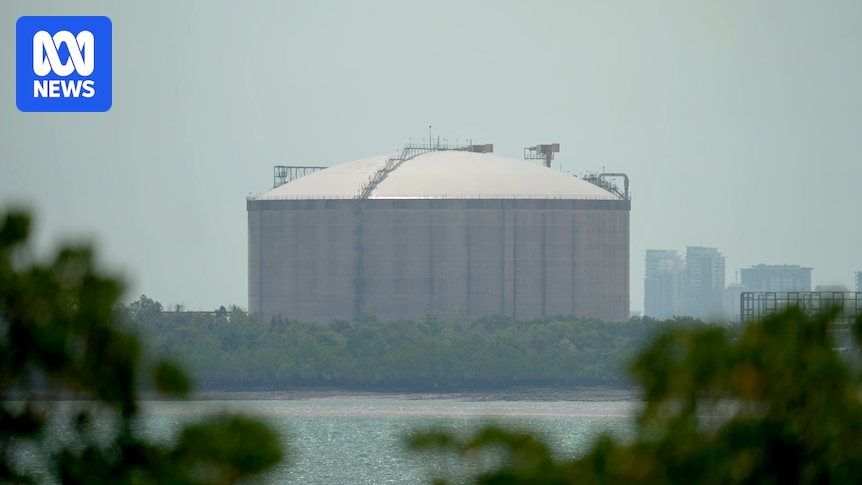
In a revelation that sent ripples through Australia’s energy sector, an ABC report uncovered a long-standing methane leak at a liquefied natural gas (LNG) plant near Darwin. The leak, which had persisted for nearly two decades, was a skeleton in the closet of Santos, Australia’s second-largest oil and gas producer. This disclosure played a crucial role in the collapse of a $36 billion takeover bid by the Abu Dhabi National Oil Company (ADNOC), marking the largest foreign cash takeover attempt in Australian history.
The leak, originating from a tank at the Darwin LNG plant, had been ongoing since the facility’s inception nearly 20 years ago. Despite being known to several government agencies, the information was not disclosed to the Northern Territory cabinet or the public. The secrecy benefited Santos, which acquired the plant in 2020 and secured approval to connect it to a new gas source until 2050 without addressing the leak.
The ABC Revelation and Its Fallout
The situation shifted dramatically when ABC News brought the leak to light, prompting a flurry of reactions. Federal crossbenchers demanded action, the federal environment minister issued a statement of concern, and environmental groups staged protests. The revelation also raised integrity questions about the Northern Territory’s top environmental regulator.
The timing of the report was particularly detrimental to Santos, which was engaged in advanced sale negotiations with ADNOC. Following the ABC’s disclosure, the $36 billion deal fell through, with ADNOC citing a “combination of factors” for withdrawing, one of which was reportedly the discovery of the leak through media reports.
Secrecy and Its Unraveling
The first public indication of plans to extend the Darwin LNG plant’s life emerged on May 6, 2020, when the Northern Territory Environment Protection Authority (NTEPA) approved the extension. This approval also facilitated Santos’s controversial Barossa gas field development in the Timor Sea, criticized for its high carbon dioxide emissions.
The Environment Centre Northern Territory, an organization opposing fossil fuel projects, sought documents supporting the NTEPA’s decision. Their Freedom of Information (FOI) requests were initially blocked by Santos, citing commercial confidentiality. However, the Centre eventually learned of the methane leak at the Darwin plant, leading to another FOI battle that confirmed the leak’s existence.
The leak, initially described as “minute,” was found to be releasing up to 184 kilograms of methane per hour, equivalent to adding 192,000 new cars to the road over 14 years.
Regulatory and Corporate Responses
After the leak was confirmed, NTEPA officers expressed concerns about environmental impacts and safety risks. They questioned ConocoPhillips, the plant’s former operator, about safety measures and public disclosure obligations. ConocoPhillips downplayed the risk, citing low methane concentration and moderate greenhouse gas risk.
Despite internal concerns, neither the NTEPA nor federal agencies like the Clean Energy Regulator and CSIRO pushed for public disclosure. The leak remained under wraps until the ABC’s investigation brought it to the forefront.
Documents revealed that Santos used knowledge of the leak to negotiate a lower purchase price from ConocoPhillips. The Environment Centre NT shared the FOI documents with the ABC, which also obtained a confidential investigation report detailing the leak’s history and impact.
Implications and Future Actions
Following the ABC’s report, federal crossbenchers called the situation a national scandal and criticized regulatory bodies. The NTEPA announced plans to revisit the leak issue with Santos, emphasizing the need for accurate leak assessments and potential mitigation measures.
NT EPA chair Paul Vogel, facing conflict of interest allegations due to his consultancy roles, assured that any conflict would be managed appropriately. The NT government renewed the Darwin LNG plant’s Environmental Protection Licence, imposing new conditions on methane leak monitoring and reduction.
As the dust settles, the fallout from the ABC’s report continues to unfold. The revelations have not only impacted corporate transactions but also highlighted significant gaps in regulatory oversight and transparency. The situation underscores the critical role of investigative journalism in holding powerful entities accountable and ensuring public interest is served.







